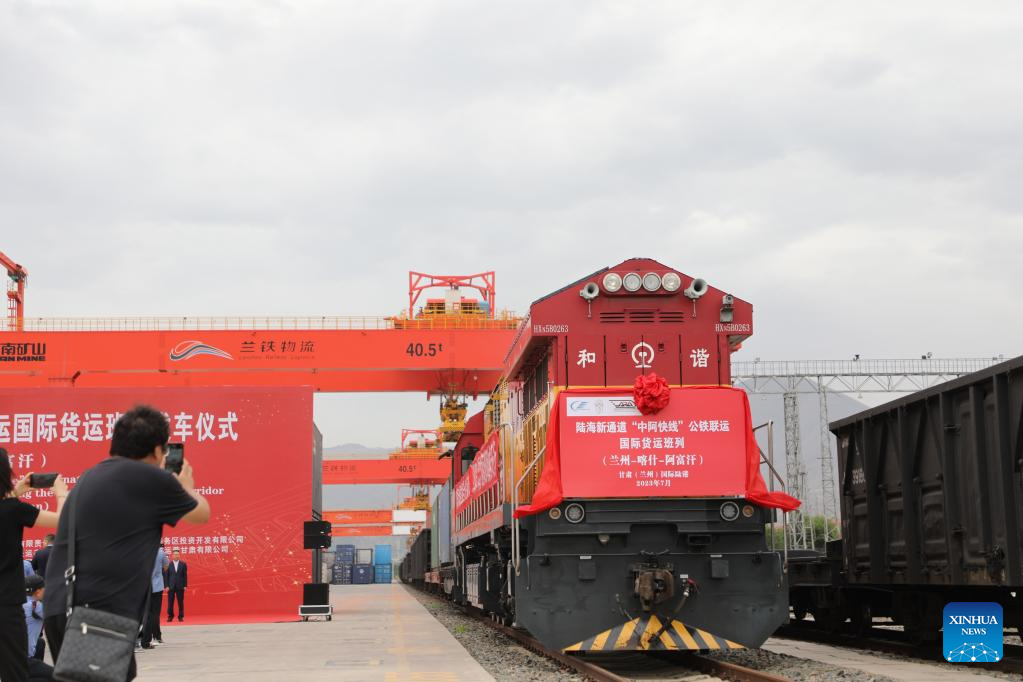Pakistan’s Engagement for Regional Peace and Stability through the SCO

The Shanghai Cooperation Organization (SCO) is a significant development in the regional and global political landscape that has carved out a role for itself as a hub of cooperation and coordination on specific aspects of economic and security policies. It is increasing its significance as a multilateral forum in regional politics in Eurasia by offering fresh impetus to regional cooperation. The significance of the SCO can be highlighted by the fact that it represents a quarter of the world’s population and three-fifths of the territory of the Eurasian continent, including Russia and China with permanent seats on the United Nations Security Council. The SCO has sought to deepen neighborhood diplomacy and ensure multilateral engagement. In 2001, the SCO was established, and Pakistan held observer status for 15 years (2001-2016).
In June 2017, Pakistan achieved full membership of the SCO. Considering that Pakistan is an important stakeholder in regional security and integration, its inclusion in the organization is essential for regional alignment. Pakistan’s accession to the SCO as a full-fledged member has strengthened the country’s ability to acquire economic benefits through trade growth and the success of the China-Pakistan Economic Corridor (CPEC), a flagship project of the Belt and Road Initiative (BRI).
In addition, the SCO has offered two vital prospects for Pakistan’s foreign policy. It will enhance Pakistan’s global image as a responsible state while empowering the country to debunk the anti-CPEC narrative. The SCO forum can also help Pakistan resolve the ongoing Afghanistan conundrum by engaging regional actors for peace and stability. Since joining the SCO, Pakistan has experienced a range of positive impacts that have helped redefine its regional status and foster deeper cooperation with other member states. Islamabad faces numerous challenges at both regional and international levels. Pakistan’s status as a full member of the SCO will help it address various challenges through enhanced regional cooperation, multilateral diplomacy, counter-terrorism and security cooperation, energy cooperation, economic opportunities, and geopolitical significance. Considering growing China-U.S. competition and the withdrawal of U.S. forces from Afghanistan, Pakistan is grappling with several problems including an economic meltdown and a security conundrum in Afghanistan. The U.S. withdrawal removed the central reason for bilateral engagement between Islamabad and Washington and empowered Pakistan to inch out of the U.S. orbit of influence and look inward toward the region. And the growth of regional consciousness in the Eurasian landscape has enabled different regional actors to attain an autonomous character in the determination of their policies. Pakistan is also reinventing itself in these geo-strategic and geo-economic dynamics. Similarly, the ineffectiveness and dormancy of the South Asian Association for Regional Cooperation mean that the SCO offers a viable alternative for Pakistan to pursue its national interests.
This has helped Pakistan communicate to the international community its efforts against terrorism and dispel the narrative that cultivates its image as a hotbed of terrorism. China’s support for Pakistan and recognition of its efforts has helped the country enhance its credentials. Moreover, efforts against terrorism and extremism can be further expanded if the tactical expertise gained by the SCO is extended to Pakistan’s law enforcement agencies to diversify the country’s security measures. Pakistan’s membership in the SCO has allowed it to collaborate with other members of the organization to address traditional and non-traditional security threats and enhance regional stability.
In unstable and war-torn Afghanistan, a resurgence of drug trafficking would empower international terrorist organizations in Afghanistan to foment trouble in neighboring states, stoking separatism, extremism, and terrorism. Pakistan, as an immediate neighbor of Afghanistan, has suffered greatly from the unstable environment in Afghanistan. After 22 years, Afghanistan is again poised at a historic crossroad, and any conflict in the country will have a direct bearing on the security of the region as well as on the members of the SCO.
Given the seriousness of the situation in Afghanistan, Pakistan has made considerable efforts by engaging with other SCO members to point the Afghan issue in the right direction. At the SCO summit in July 2021 in Tajikistan, member states of the SCO including Pakistan expressed commitment to building consensus on resolving the conflict in Afghanistan. The SCO-Afghanistan Contact Group was established as a mechanism that reaffirms respect for the sovereignty, independence, and territorial integrity of Afghanistan and expresses an acute desire for a peaceful and stable Afghanistan that respects all cultures, traditions, and ethnic groups. The SCO arrangement, especially the role of Russia and China, has greatly empowered Pakistan to navigate the Afghan issue in the direction of peace and stability.
The SCO has also acted as an image builder for Pakistan. Members of the SCO recognize Pakistan’s role in maintaining peace and security in the region. The organization has also validated Pakistan’s narrative of its efforts to combat terrorism. Moreover, Pakistan’s full-fledged membership has not only enabled it to counter diplomatic isolation but also solidified its status as a responsible state. Pakistan has received a license to be recognized as a responsible state in international relations by becoming part of the multilateral organization of the SCO. Pakistan’s relationship with the Central Asian countries can be strengthened through the SCO platform. Pakistan needs to increase engagement with Central Asia, which will help achieve increased economic activity, regional interconnectivity, and energy security. In terms of economic benefits, Pakistan is increasing its trade volume. The SCO can potentially boost trade volume further after the completion of the CPEC. The SCO also provides a solution for Pakistan’s energy requirements. Therefore, Pakistan has enhanced its economic and political cooperation with other SCO member states, broadening the policy options for Pakistan. By taking certain measures, Pakistan can further leverage multilateral forums like the SCO.
The author is founder and executive director of the Islamabad-based Global Strategic Institute for Sustainable Development.
